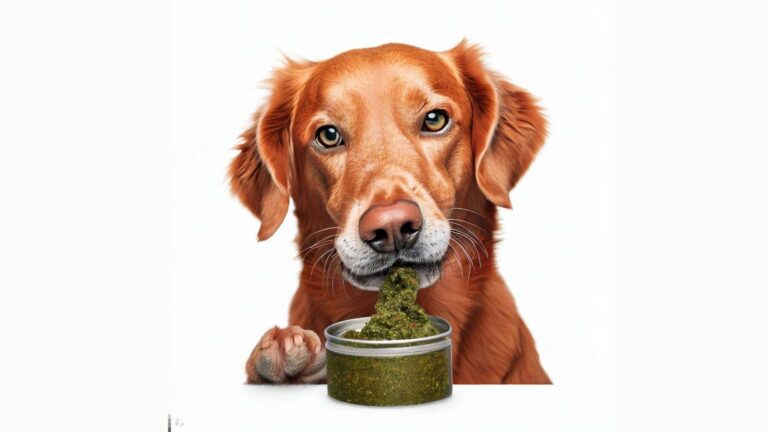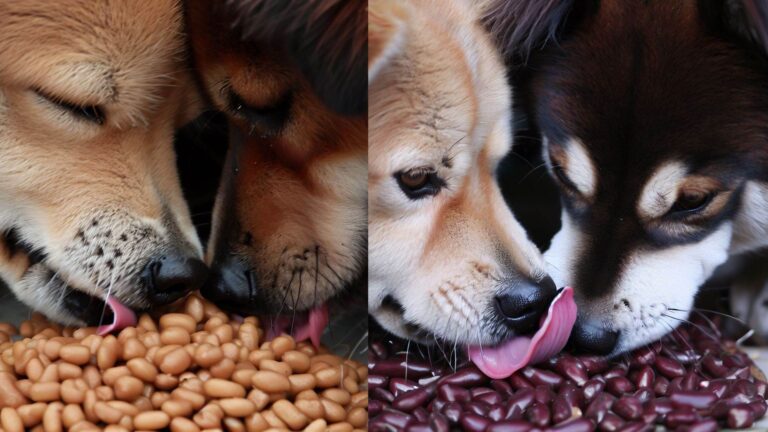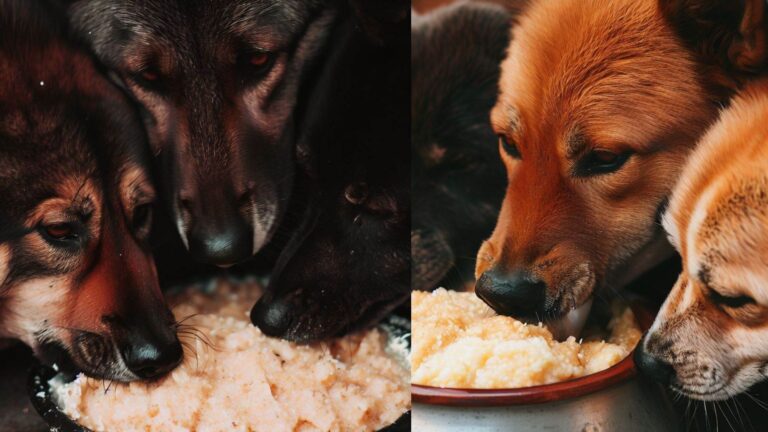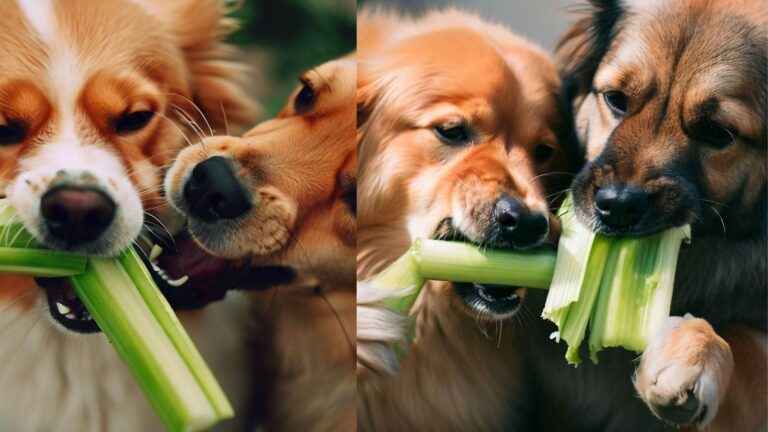As responsible pet owners, it’s natural to question the safety and nutritional value of the foods we offer to our furry companions. Among the many human foods that dogs may encounter, cherry tomatoes often raise concerns.
These small, flavorful fruits are loved by many, but can dogs safely enjoy them as well? In this blog post, we’ll delve into the topic of dogs and cherry tomatoes to provide you with a comprehensive understanding of the potential benefits and risks associated with feeding these treats to your four-legged friend.
Table of Contents
Nutritional Value of Cherry Tomatoes
Cherry tomatoes are packed with essential nutrients and are considered a healthy snack for humans. They are an excellent source of vitamins A, C, and K, potassium, and dietary fiber. Additionally, they contain antioxidants that can benefit overall health and support a strong immune system.
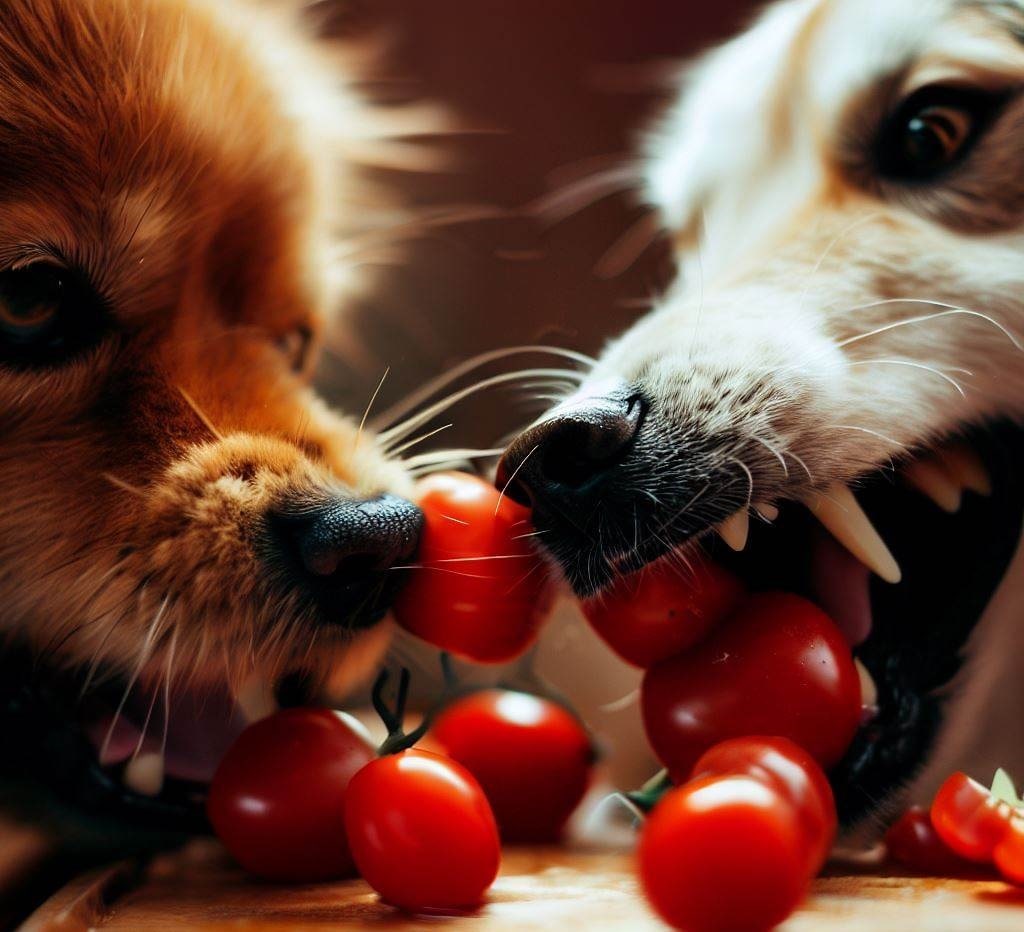
Can Dogs Safely Eat Cherry Tomatoes?
The short answer is yes; dogs can eat cherry tomatoes but with some precautions. While cherry tomatoes are generally safe for canine consumption, there are a few factors to consider.
Size and Portion Control
Cherry tomatoes are small, and their size can pose a choking hazard, especially for smaller dogs. It’s essential to slice them into smaller, manageable pieces to avoid any potential risks.
Additionally, feeding cherry tomatoes in moderation is crucial, as excessive consumption may lead to digestive upset.
Toxicity Concerns
While cherry tomatoes themselves are not toxic to dogs, other parts of the tomato plant, such as the leaves and stems, contain a toxic substance called solanine. To prevent any potential harm, ensure that only the ripe fruit is offered to your dog and remove any green parts.
Allergies and Individual Sensitivities
Like humans, dogs can have individual food sensitivities or allergies. While tomatoes are not a common allergen for dogs, it’s essential to monitor your pet for any adverse reactions after introducing them to cherry tomatoes for the first time.
Symptoms of an allergic reaction may include itching, skin irritations, gastrointestinal distress, or respiratory problems. If you notice any unusual symptoms, consult your veterinarian immediately.
Potential Benefits of Cherry Tomatoes for Dogs
When fed in moderation and with the necessary precautions, cherry tomatoes can offer certain health benefits to dogs:
Nutritional Value
Cherry tomatoes contain several essential vitamins and minerals that can contribute to a well-balanced diet for dogs. Vitamins A and C support a healthy immune system, while vitamin K plays a vital role in blood clotting. Additionally, fiber can aid digestion and promote regular bowel movements.
Antioxidant Properties
The antioxidants found in cherry tomatoes, such as lycopene, can help neutralize harmful free radicals in the body. These compounds may contribute to improved overall health and potentially reduce the risk of certain diseases in dogs, including certain types of cancer.
Here are a few Additional Points to Consider When It Comes to Dogs and Cherry Tomatoes
Here are a few additional points to consider when it comes to dogs and cherry tomatoes:
- Tomato Varieties: While cherry tomatoes are generally safe for dogs, it’s important to note that there are various tomato varieties, some of which may not be suitable for canine consumption. Certain larger tomato varieties, such as beefsteak tomatoes, can contain higher levels of acidity, which may cause stomach upset or gastrointestinal issues in dogs. Stick to feeding your dog cherry tomatoes, or consult with your veterinarian regarding other safe tomato varieties.
- Tomato-Based Products: While cherry tomatoes themselves can be offered to dogs in moderation, it’s crucial to be cautious with tomato-based products, such as sauces, salsas, or canned tomatoes. These products often contain additional ingredients like onions, garlic, salt, or spices, which can be harmful to dogs. Always check the ingredient list and avoid feeding your dog any tomato-based products that may contain toxic or unhealthy ingredients.
- Individual Digestive Sensitivity: Dogs, like humans, can have varying degrees of digestive sensitivity. Some dogs may have more sensitive stomachs and may experience digestive upset or diarrhea after consuming tomatoes, including cherry tomatoes. It’s important to observe your dog’s reaction to cherry tomatoes and discontinue feeding them if any gastrointestinal issues occur.
- Seeds: Cherry tomatoes contain small seeds, which are generally not harmful to dogs. However, if your dog has a history of digestive issues or you’re concerned about the seeds, you can remove them before offering the tomato pieces to your pet. The seeds themselves are unlikely to cause harm, but it’s always best to err on the side of caution if you have any concerns.
Read More: Can Dogs Eat Sardines?
FAQs
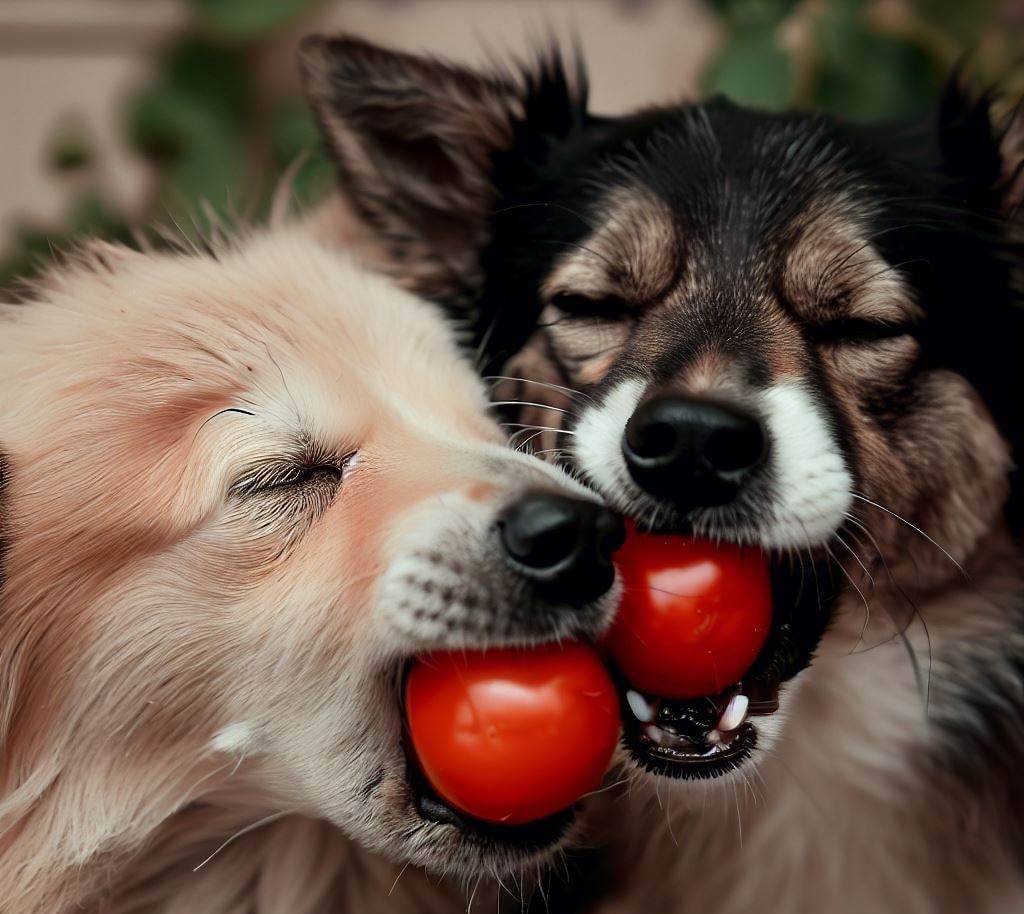
Can dogs eat cherry tomatoes?
Yes, dogs can eat cherry tomatoes, but they should be fed in moderation and with certain precautions.
Are cherry tomatoes toxic to dogs?
Cherry tomatoes themselves are not toxic to dogs. However, other parts of the tomato plant, such as the leaves and stems, contain a toxic substance called solanine. Ensure that only the ripe fruit is offered to your dog, and remove any green parts.
Can dogs choke on cherry tomatoes?
Yes, cherry tomatoes can pose a choking hazard, especially for smaller dogs. It’s important to slice them into smaller, manageable pieces to prevent choking.
Can dogs eat the skin and seeds of cherry tomatoes?
Dogs can consume the skin and seeds of cherry tomatoes without major issues. However, if your dog has a history of digestive sensitivity or you’re concerned about the seeds, you can remove them before offering the tomato pieces.
What should I do if my dog eats an unripe cherry tomato or the green parts?
If your dog consumes an unripe cherry tomato or the green parts, monitor them closely for any signs of discomfort or illness. Contact your veterinarian if you notice any adverse reactions.
Can dogs with allergies eat cherry tomatoes?
While tomatoes are not a common allergen for dogs, individual dogs can have food sensitivities or allergies. Monitor your dog for any signs of an allergic reaction, such as itching, skin irritations, or gastrointestinal distress. Consult your veterinarian if any unusual symptoms occur.
Are cherry tomatoes beneficial for dogs?
Cherry tomatoes can offer certain health benefits to dogs. They contain essential vitamins, minerals, and antioxidants that can support a healthy immune system and digestion when fed in moderation.
Can dogs with certain health conditions eat cherry tomatoes?
Dogs with specific health conditions, such as pancreatitis or gastrointestinal disorders, may need to avoid tomatoes altogether. It’s best to consult your veterinarian to determine if cherry tomatoes suit your dog’s dietary needs.
Can dogs eat other types of tomatoes?
While cherry tomatoes are generally safe for dogs, larger tomato varieties, such as beefsteak tomatoes, can have higher acidity levels that may cause stomach upset. Stick to feeding your dog cherry tomatoes, or consult your veterinarian regarding other safe tomato varieties.
How should I introduce cherry tomatoes to my dog’s diet?
Start by offering a small piece of ripe cherry tomato and observe your dog’s reaction. If there are no adverse effects, you can gradually increase the amount. Remember to slice them into small, dog-friendly pieces to prevent choking.
Conclusion
When offered in moderation and with the necessary precautions, cherry tomatoes can be a safe and nutritious treat for dogs.
Ensure the tomatoes are ripe, remove any green parts, and slice them into small, dog-friendly portions to avoid choking hazards. It’s also essential to monitor your dog for any adverse reactions or allergies and consult your veterinarian if any concerns arise.
Remember, while cherry tomatoes can provide certain health benefits, they should never replace a well-balanced and nutritionally appropriate diet formulated specifically for dogs.
Disclaimer: This blog post is for informational purposes only and should not replace professional veterinary advice. Consult a qualified veterinarian if you have any concerns or questions regarding your dog’s diet or health.

